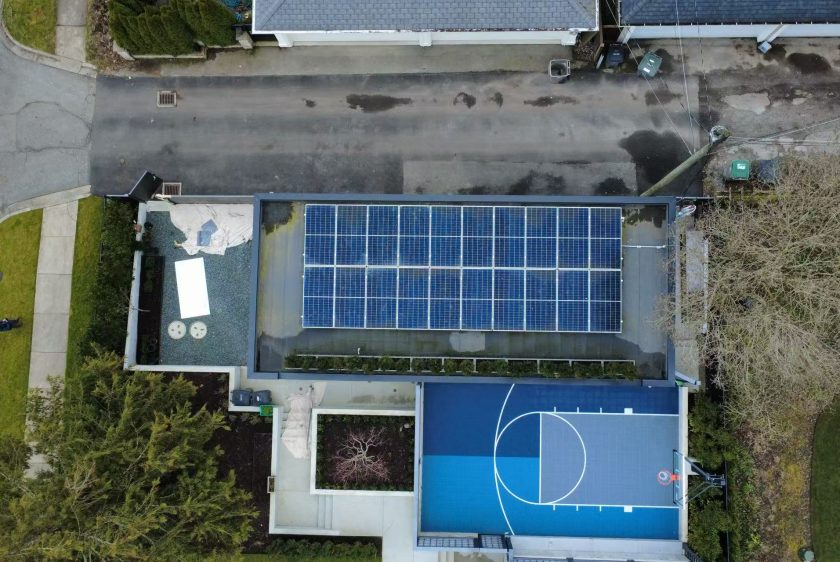As solar energy continues to gain popularity across British Columbia and beyond, more homeowners and business owners are considering going solar. However, the first thing that comes up to mind is: Should I go grid-tied or off-grid?
Understanding the difference between these two types of solar systems is the first step toward making the right decision for your energy needs, lifestyle, and budget. In this post, we’ll break down the pros and cons of both grid-tied and off-grid solar systems to help you determine which setup is right for your property.
What is a Grid-Tied Solar System?
A grid-tied solar system is connected to local utility grid. It allows you to draw power from the grid when your solar panels aren’t producing enough electricity (e.g., at night or on cloudy days), and to send excess energy back to the grid when you produce more than you use-often earning you credits through net metering.
Key Features:
- No batteries required (although optional)
- Connected to the utility grid
- Access to BC Hydro’s electricity when solar generation is low
- Eligible for net metering programs
Pros:
- Lower upfront cost – no need to invest in expensive battery storage
- Access to utility power anytime – reliable power supply even on low-sun days
- Net metering benefits – earn credits for sending excess electricity back to the grid
- Government incentives – often eligible for rebates, such as BC Hydro’s solar rebates
Cons:
- Dependent on the grid – during a power outage, your solar system shuts down unless you have a battery backup
- Limited energy independence – you’re still tied to the utility
What is an Off-grid Solar System?
An off-grid solar system operates independently of the utility grid. It’s completely self-sufficient, using battery storage to store excess solar power for use at night or during cloudy days.
Key Features:
- Requires a battery bank for energy storage
- Fully independent from the grid
- Ideal for remote locations where grid access is unavailable or unreliable
Pros:
- True energy independence – not affected by grid failure or outages
- Ideal for remote areas – perfect for cabins, farms, or rural homes with no access to the grid
- No monthly utility bills – you’re your own energy provider
Cons:
- Higher upfront cost – requires batteries and backup power systems
- More maintenance – batteries and generators need regular upkeep
- Energy management is critical – you must closely monitor and conserve energy during low-production periods
Grid-Tied VS. Off-Grid: A Quick Comparison
| Feature | Grid-Tied | Off-Grid |
| Utility Backup | Yes | No |
| Battery Storage | Optional | Required |
| Initial Cost | Lower | Higher (Due to batteries) |
| Power During Outages | No | Yes |
| Net Metering | Eligible | Not applicable |
| Energy Independence | Partial | Full |
Which System Should You Choose?
Whether you choose a grid-tied or off-grid solar system, switching to solar is a powerful way to reduce your carbon footprint, save on electricity costs, and take control of your energy future.
At Amor Energy, we specialize in designing and installing both grid-tied and off-grid solar systems tailored to your unique needs. Not sure what’s right for you? Our team will assess your energy usage, property layout, and long-term goals to recommend the most cost-effective and reliable solution.
Ready to Go Solar?
Contact us today for a FREE solar consultation or explore more resources and past projects on our website.


